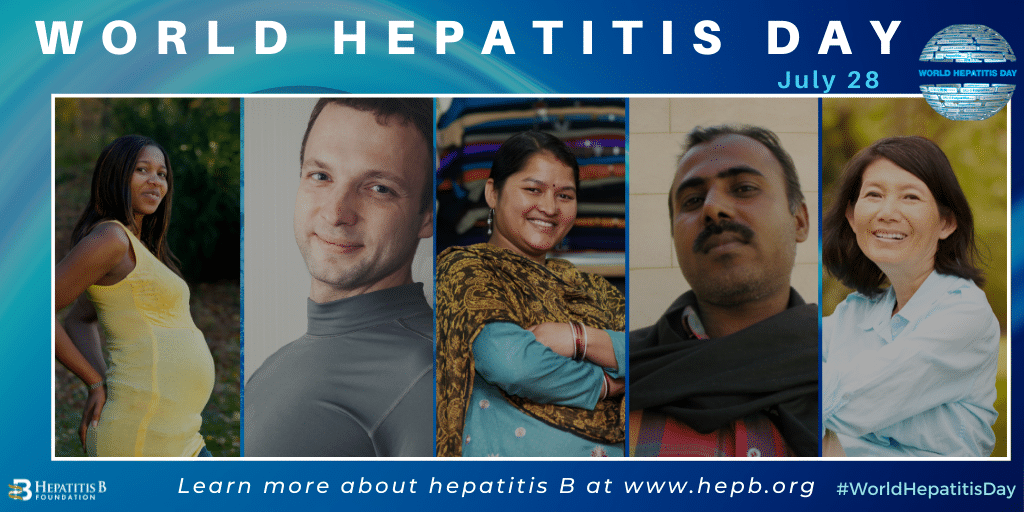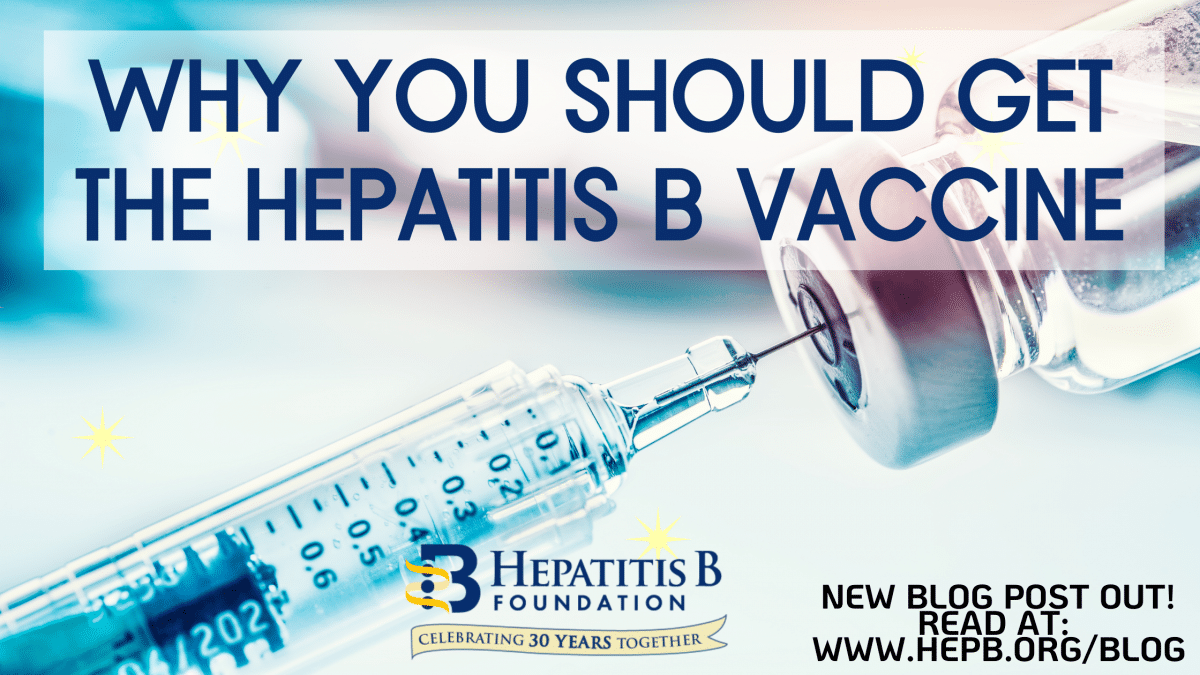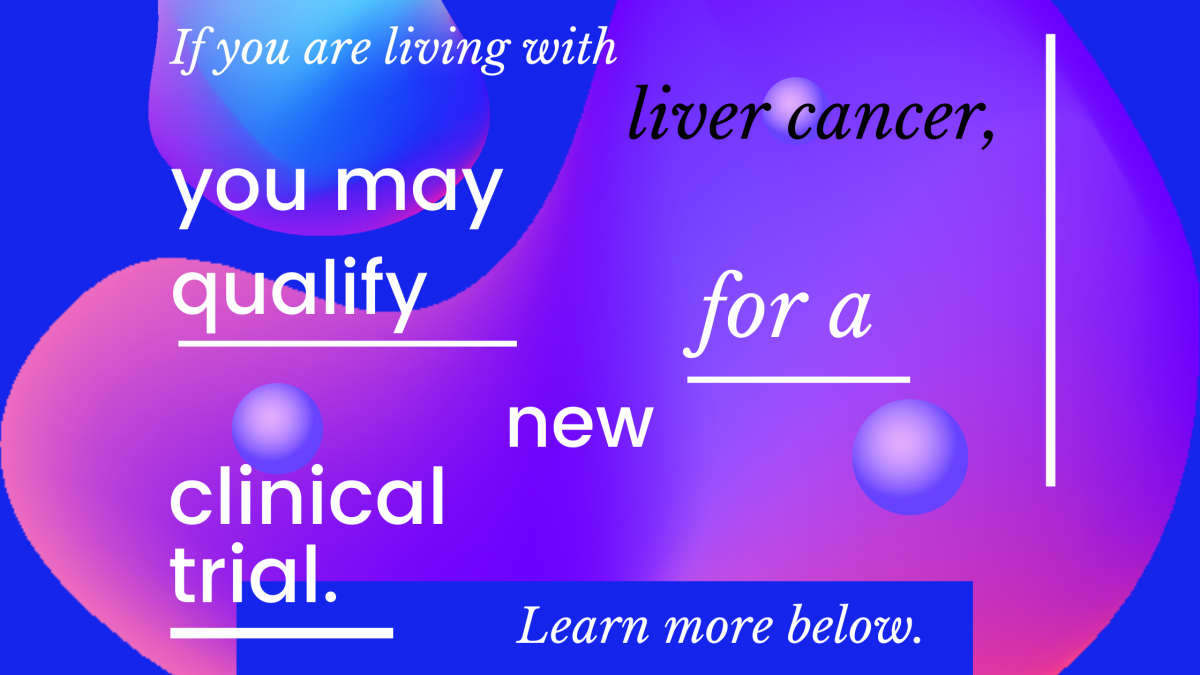
Every year on July 28th, we celebrate World Hepatitis Day in honor of Dr. Baruch Blumberg’s birthday. Dr. Blumberg discovered the hepatitis B virus in 1967 and subsequently developed the hepatitis B vaccine two years later in 1969. We commemorate World Hepatitis Day by raising awareness about viral hepatitis. With almost 300 million individuals living with hepatitis B worldwide, it is so important to bring awareness to this preventable and treatable disease. This year’s World Hepatitis Day theme is “Hepatitis Can’t Wait”. The theme focuses on the fact that people with viral hepatitis need action now – to make sure they have access to testing and treatment to save their lives.
Get Involved
Here are some ways you can get involved with World Hepatitis Day!
Share on Social Media
You can get involved with the Hepatitis Can’t Wait campaign by doing 1-minute actions, 10-minute actions, or longer actions! Your actions can be as simple as sharing a post on social media or more involved like getting in contact with your policymaker to encourage viral hepatitis prioritization
Discrimination Registry
If you are experiencing discrimination due to your hepatitis B status, consider adding your story to our discrimination registry. We are working to document discrimination related to hepatitis B. Discrimination is defined as the unjust, unfair or prejudicial treatment of a person on the grounds of their hepatitis B status. In other words, being treated differently because of one’s hepatitis B infection. For someone with hepatitis B, this can mean exclusion, denying benefits, denied employment, education, training, goods or services, or having significant burdens imposed on an individual due to their infection status.
Become an Advocate
Become a Hep B Advocate! Sign up below to receive the latest news and updates about hep B policy issues, learn about upcoming advocacy events, and be notified of opportunities to take action and show your support for our policy initiatives. We’ll provide resources, information, and tools to help you:
- Communicate effectively with your elected officials
- Educate and engage your community on hep B policy issues
- Recruit and organize other hep B advocates and champions in your community
- Promote and participate in ongoing national, state, and local advocacy efforts.
Participate in a Clinical Trial
Volunteering for a clinical trial program can be very valuable. Expensive blood work, treatment medications, and doctor’s visits are usually provided free of charge for those accepted into a study. Clinical trials also provide the opportunity to potentially benefit from the latest advances in medical science.
GlaxoSmithKline is launching a clinical trial, “B-Together,” to study how two drugs (GSK3228836 and Pegasys) might work together to treat chronic hepatitis B (CHB). Researchers hope to find new treatments that could be more effective and lead to positive results that last long after the treatment ends.
You may be eligible to participate in this trial if you are at least 18-years old, have been living with documented CHB for at least six months, and have also been receiving stable nucleos(t)ide treatment (not telbivudine) with no changes for at least six months prior to screening and no planned changes for the duration of the study (79 weeks). This trial is ongoing in the UK, Spain, Russia, Poland, Italy, Korea, Japan, China, the U.S., Canada and South Africa.
Learn more and check your eligibility to participate.
Listen and Learn
Listen to our podcast: B Heppy! This podcast is part of our 300 Million Reasons campaign, a movement to improve awareness about hepatitis B and liver cancer worldwide, to promote engagement of key stakeholders, and to empower people impacted by hepatitis B to become vocal advocates. There are almost 300 million people around the world living with chronic hepatitis B infection, and we want to make sure each and every voice is heard.
Below are the episodes you can listen to, and stay tuned for more episodes about hepatitis B!
- COVID-19 and Hepatitis B
- The History of the Hepatitis B Foundation and Hep B 101
- All of Us – Research Program
- The Patient Perspective with Bright
- Patient Resilience
Author: Evangeline Wang
Contact Information: info@hepb.org


 During the Covid-19 pandemic, there has been much controversy over vaccines. Although there has always been an anti-vaccine movement, it has grown during the pandemic. However, despite all of that, it is highly recommended that people who are at risk get the hepatitis B vaccine. Almost 300 million people worldwide have chronic hepatitis B and almost 800,000 people die every year due to hepatitis B complications. In fact, hepatitis B is the greatest risk factor for developing liver cancer (HCC). The hepatitis B vaccine is simple and effective. It requires either 2 or 3 shots over a few months. It is one of the most-administered vaccines worldwide, and one of the safest, with few side effects!
During the Covid-19 pandemic, there has been much controversy over vaccines. Although there has always been an anti-vaccine movement, it has grown during the pandemic. However, despite all of that, it is highly recommended that people who are at risk get the hepatitis B vaccine. Almost 300 million people worldwide have chronic hepatitis B and almost 800,000 people die every year due to hepatitis B complications. In fact, hepatitis B is the greatest risk factor for developing liver cancer (HCC). The hepatitis B vaccine is simple and effective. It requires either 2 or 3 shots over a few months. It is one of the most-administered vaccines worldwide, and one of the safest, with few side effects!